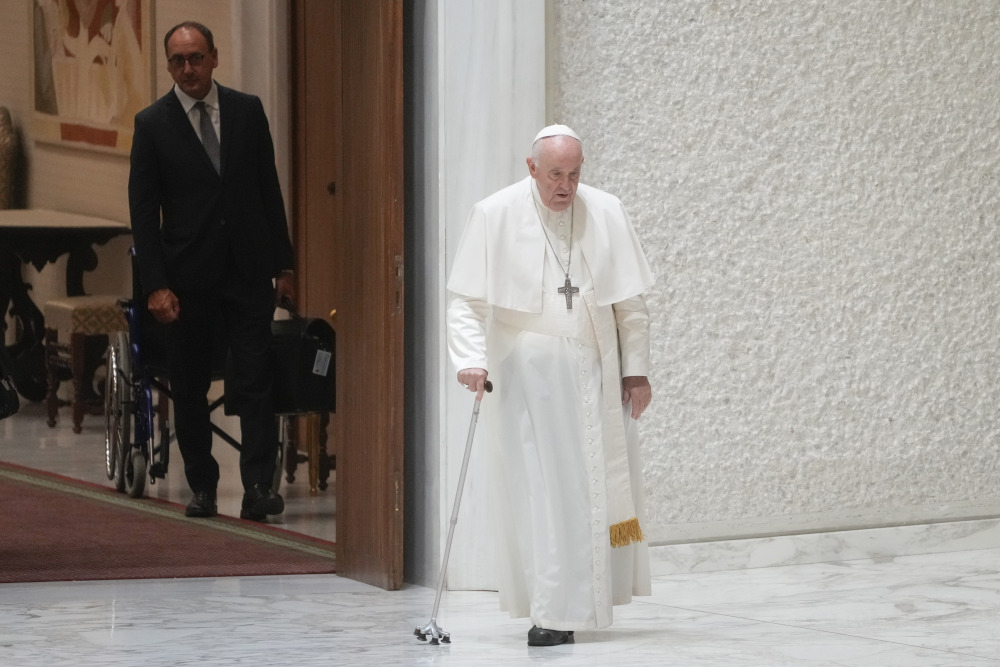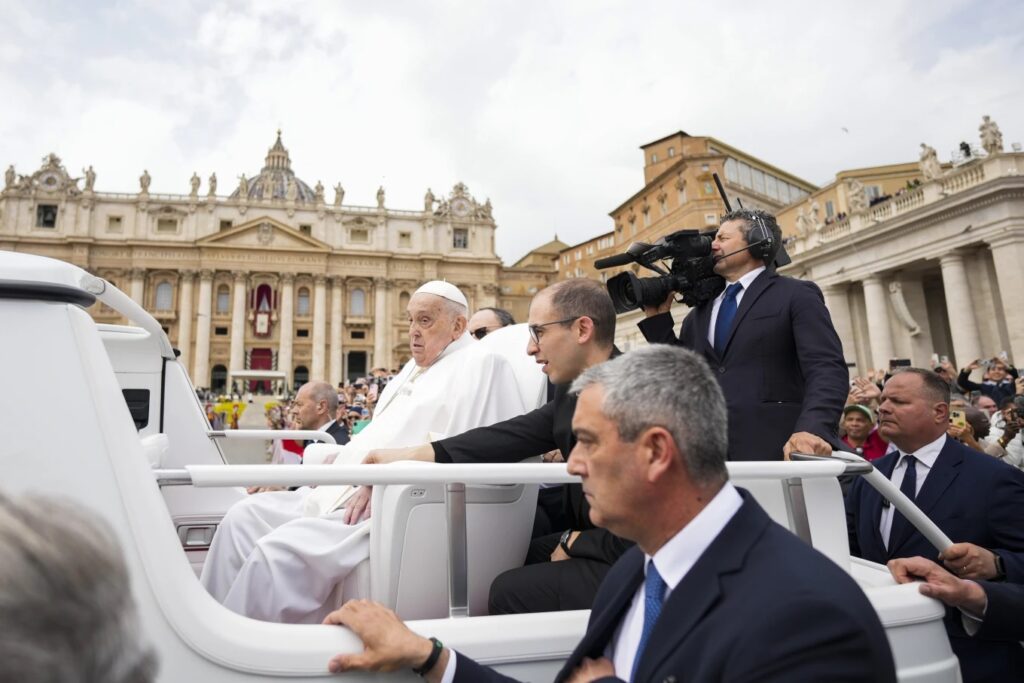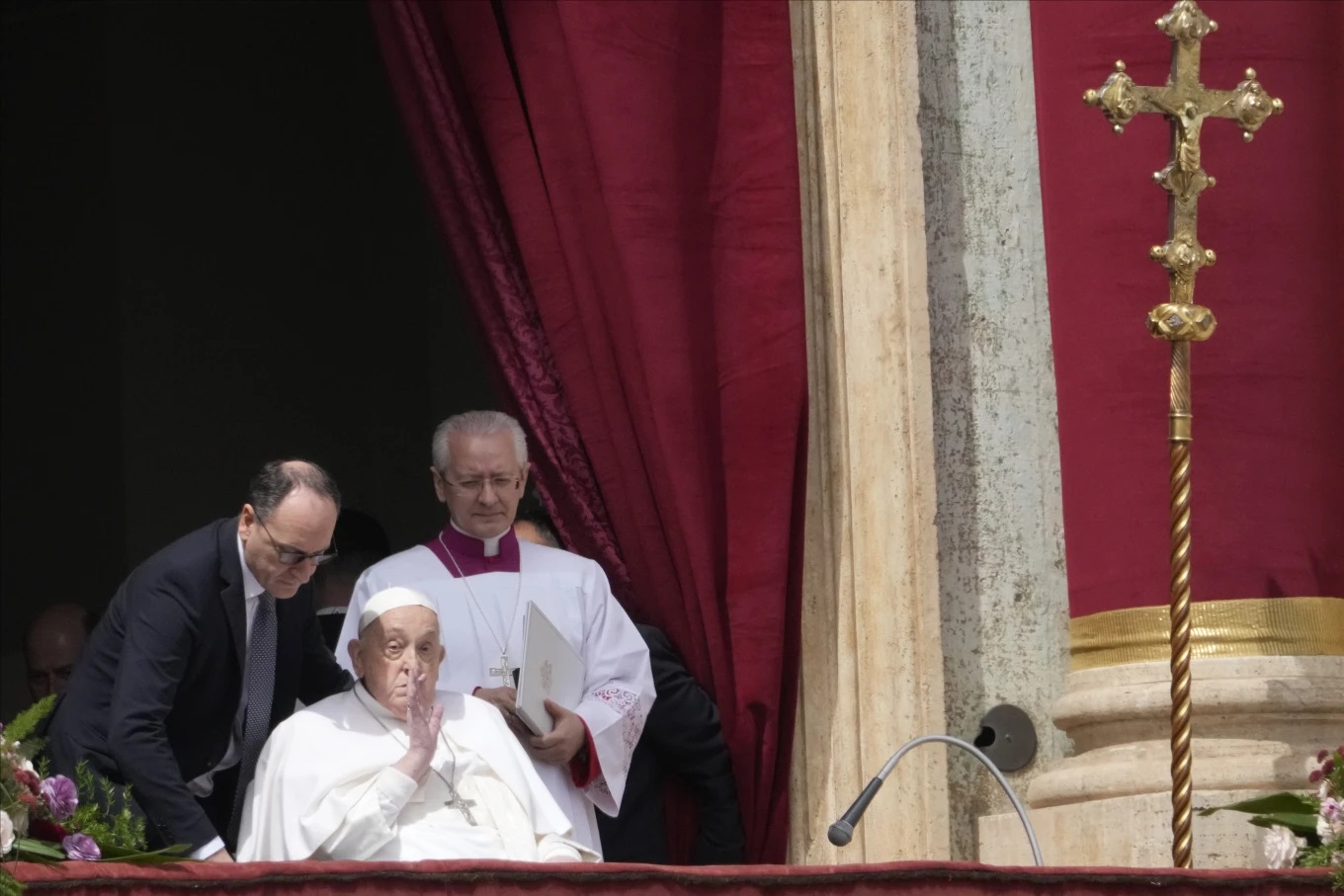By Andy Cons Matata
NAIROBI, APRIL 29, 2025 (CISA)-In the heart of a crisis, when lives hang in the balance and medical decisions weigh heavily, one person’s conviction can change everything. Massimiliano Strappetti, the chief nurse to Pope Francis, demonstrated this unshakable resolve in February 2025 when he made a decision that would forever alter the course of history and save a life. His actions, particularly in the context of African healthcare, hold a deep and transformative lesson for nurses everywhere.
The situation was dire. Pope Francis’ health had deteriorated rapidly, and on February 28, 2025, doctors – seasoned, respected, and highly experienced, including the revered Doctor Sergio Alfier, the chief surgeon at the highly rated Gemelli Hospital – stood on the brink of giving up. They had concluded that there was little hope left for Pope Francis’ survival and recommended discontinuing treatment. The doctors’ advice was grounded in years of expertise, and they believed it was time to allow nature to take its course. But one voice, one unwavering spirit, rose above the clinical coldness of the moment: Massimiliano Strappetti, the chief nurse.

As a nurse, Strappetti’s role was traditionally seen as one of following orders, supporting doctors, and ensuring that the care plan was executed as intended. Yet, on that day, Strappetti found himself in a moment that would test not only his professional duty but his moral compass. With a sense of duty that transcended simple protocol, he defied the senior doctors’ advice and urged them to continue treatment, believing that there was still a chance for the Pope. In that moment, Strappetti embodied the qualities that nurses around the world, especially in Africa, can learn from: empathy, advocacy, and the courage to stand up for what is right, even when it goes against the prevailing consensus.
Massimiliano Strappetti’s decision to continue treatment was not a call to defy the medical community but rather a plea for the preservation of hope in the Holy Year of the Jubilee of Hope. It was a reminder that the medical profession is not just about statistics, diagnoses, and protocols – it is also about the human spirit and the possibility of miracles, however unlikely they may seem. His action did not just save Pope Francis’ life; it exemplified the profound impact that a dedicated and compassionate nurse can have in a crisis.
His decision proved timely as it gave the Holy Father a few months to live before he finally passed away on April 21, 2025.
Having cared for the aging Pope Francis as his personal nurse since 2022, Italian nurse Massimiliano Strappetti was also among the few people who saw the Holy Father moments before his death on Easter Monday.
The pope’s last words and final greetings were reportedly addressed to Strappetti, the man he trusted to care for him throughout the multiple illnesses and health emergencies he endured in the last years of his life.
“Thank you for bringing me back to the Square,” the pope is reported to have told the nurse. Stappetti, a husband and father known for his generosity toward others, brought the Holy Father in a wheelchair to the central loggia of St. Peter’s Basilica to deliver his final Easter Sunday urbi et orbi address on April 20, before his death on April 21.
But why is this particularly significant for nurses in Africa?
Nurses in many African countries often work under challenging circumstances, facing limited resources, overcrowded hospitals, and overwhelming patient loads. In these environments, the role of the nurse is often marginalised, and their voices may not always be heard when it comes to major decisions about patient care. Many nurses feel that they must always follow orders from doctors, no matter the situation, and this creates a culture where their professional insights and empathy might be overlooked. However, Strappetti’s story teaches that nurses are not just caretakers of medical charts or assistants in treatments—they are also advocates for their patients, equipped with the unique ability to see beyond the medical charts and into the heart of the person they are caring for.

In Africa, where healthcare systems often face substantial challenges, nurses can take a cue from Strappetti’s example. Whether in the overcrowded wards of bustling urban hospitals or the makeshift clinics in remote villages, nurses have the power to act as the voice of reason and hope when faced with overwhelming odds. Strappetti showed that even in the most desperate moments, a nurse’s role is not just about following instructions, but about caring deeply for the patients they serve, advocating for their well-being, and sometimes making difficult decisions that could change the course of history. Without Strapetti’s intervention, the celebration of the Holy Week and Easter 2025 would have been different. Without Strapetti, His Holiness Pope Francis would have left us on February 28, 2025!
Nurses across Africa face a multitude of challenges every day. Strappetti’s actions are a beacon of hope for them. They can remember that their judgment, experience, and compassion are invaluable assets. In a time of crisis, like when all hope seems lost, nurses like Strappetti offer a reminder that it’s not just the doctors who can decide the fate of a patient, but everyone working as a team, especially those with the closest contact with patients. Nurses are, therefore, called not only act as advocates for their patients but to defend their patients to the hilt.
The healthcare systems across Africa may not always have the same resources as the Gemelli Hospital, but they have something just as powerful: the passion and commitment of nurses who can make a difference. They can emulate Massimiliano Strappetti by trusting their instincts, standing firm in the face of adversity, and ensuring that patients, even in their darkest moments, are given every chance for survival.
Strappetti’s choice did not just save the life of Pope Francis—it saved the idea that healthcare is about more than just medicine. It is about compassion, hope, and the courage to fight when others believe it is too late. This is a lesson that resonates far beyond the walls of the Vatican. It is a lesson that nurses in Africa, and around the world, should carry with them every day. In a profession often overshadowed by doctors, Strappetti showed that nurses have an immense power: the power to change lives, to speak for those who cannot, and to make the tough calls that can mean the difference between life and death. Next time you relate to your friend how Pope Francis missed death on that fateful day, do not forget to mention nurse Massimiliano Strappetti.
